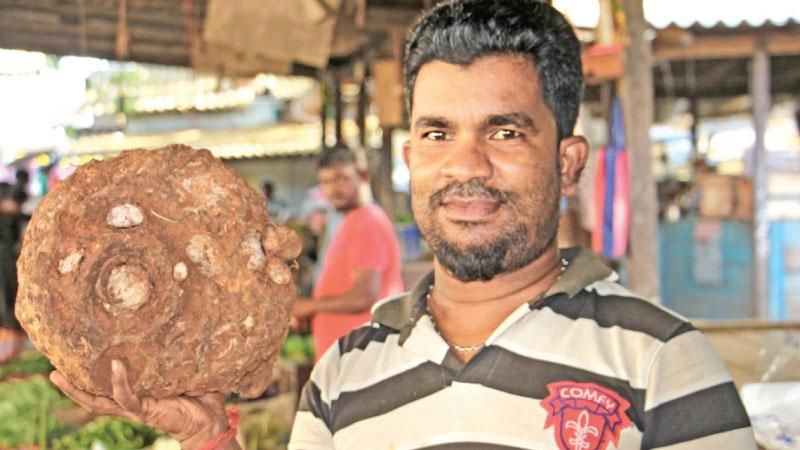
One of the greatest gifts bestowed on our island is that of cultural diversity. For centuries we have been a country that was embellished with understanding and a resilient spirit of unity. This is a blessed nation where the pinnacles of the dagoba, the minaret of the mosque, the dome of the church and the gopuram of the kovil reach towards the sky in total harmony. For decades we have come to enjoy our unique culinary traditions, infused with spices that are common to all. It is terribly unfortunate that such a nation was deliberately misled into an era of conflict, rupturing unity and brotherhood.
Thankfully, that dark and dangerous chapter is over, due to the sacrifice of many. However, as we all know though a wound heals the scar remains. Yet, as we march towards sustainable reconciliation I am confident that even those somewhat stubborn scars will fade away erased by the greater force of love, forgiveness, tolerance and peace.
On my media assignments I have been truly blessed to travel to every province of this country, meeting young people and talking with them. The Northern Province is one massive area that needs consistent effort towards rehabilitation, reconciliation as much as the Southern Province. The predominantly Tamil speaking youth of the North have endured much.
Anyone born on or after 1983 would be in the age group of 25-35 years today. According to some of these youth they were born in refugee camps, their families being displaced due to the war and the ethnicity based riots that devastated Colombo and other major cities.
As we look back now, it is obvious that whatever issues which led to these conflicts could have been sorted out in the political realms, irrespective of any political party. Most of these youth had their schooling disturbed at regular intervals. Through determination some passed the A/L exams entered university.
There are hundreds who were unable to sit for their O/L and A/L exams. This resulted in these young men and women being unable to secure dignified employment. To this day they engage in daily wage based jobs, and are marginalised in a fiercely caste conscious society. I was saddened to witness in some areas of the North, Tamil citizens being segregated at village wells- there are wells for the high castes and low castes. This is nonsense. We are Sri Lankans. This mentality must cease immediately.
Even at institutions of learning there is caste based preference over academic excellence. Official documents have not reached the administrative stage where they can be read in Tamil- this is another genuine grievance of these youth (this happens even in Colombo).
This is why we all need to learn English as a link language. Many young people grew up as orphans due to the war. When young people are thus marginalised by their own, they become vulnerable for radicalisation- by any doctrine. Those who have relatives in Europe and other countries have managed to migrate. Many of these unskilled young men and women continue to live as second class citizens (even though they may get their PR or citizenship). They work at gas stations and supermarkets. As they reflect on their apparent fate they are inclined to blame the Sri Lankan lifestyle that led them there. This fuels feelings of resentment. I must mention that there are some enterprising Sri Lankans who have excelled and are now employing Europeans!!
There is good work done by the Government and NGOs towards fostering unity. I have witnessed this. One person who genuinely worked for reconciliation is the present Army Commander Lt. General Mahesh Senanayake. I have visited Palaly on many occasions when he was Security Force Commander Jaffna, and seen the systematic work of the Army in healing the deep scars of war. I have spoken to former combatants who have been rehabilitated and gainfully employed at the Army Farm.
On visiting the massive housing scheme of Nallinakapuram, I heard the Tamil citizens blessing Sinhalese soldiers who laboured to build their homes. The bond between these soldiers and citizens sets the benchmark for real reconciliation.
On the other hand, we cannot forget the young people of the South. Years ago they too were led to a subversive uprising which caused its own loss of lives and emotional scars. There are families who still mourn for their missing sons. Again we are all Sri Lankans. We also remember the hundreds of military personnel who died gallantly, and others who are permanently disabled. I ask the young folks in Colombo, who thrive on branded clothing and opulent cuisine, have you ever visited a disabled war veteran? Whilst reconciliation of hurting communities is done at national level, every one of us can impact a life. We have a duty to bring about change. It’s not about being Sinhalese, Tamil, Muslim or Burgher- it is about being a Sri Lankan. We must let go of hate speech that brings division. I have written before about the New Year in April- we must not say Sinhalese or Tamil New Year but celebrate it as Sri Lankan New Year. I hope Parliament will effectthis change. As a sage told me once we are all children of one strong root, now manifesting in different branches of the same tree.
